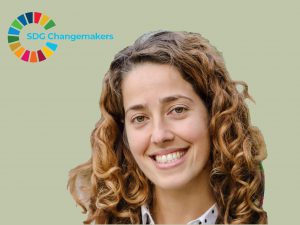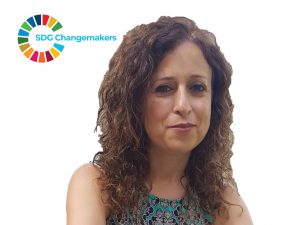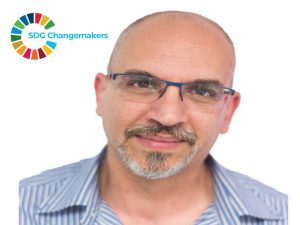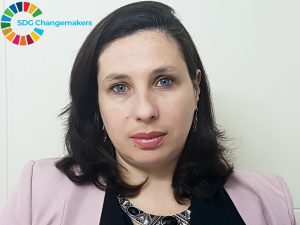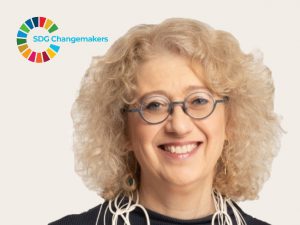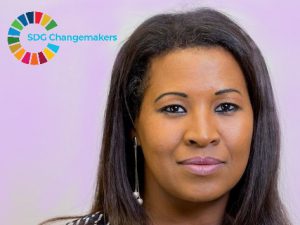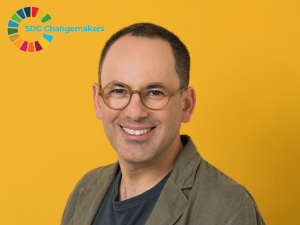Director of Diversity Department, Israel Civil Service Commission (2018-2020)
SII: How has your work been affected by the COVID-19 crisis?
MB: We worked around the clock at the height of the crisis, constantly monitoring and pushing in order to ensure that the decision-making centers hear diverse voices. It became clear very quickly that while ‘more diverse’ means ‘more professional’ in normal times, in an emergency situation ‘more diverse’ means saving lives – no less.
In view of the knowhow we accumulated through our familiarity with the various communities that comprise Israeli society, as we went forward we became an advisory body for numerous civil service units when it came to consolidating inclusive policy, as well as formulating and conveying messaging to the public. In this context, we issued specific directives regarding diversity in decision-making centers and ways to guarantee professional decision making in an emergency situation.
The department also acted to preserve the rights of civil servants from diverse backgrounds alongside the consolidation of equal and fair measures from the point of view of the tremendous diversity that exists in the governmental system.
SII: Please briefly describe your work
MB: Since 2018 I have served as Director of the Israel Civil Service Commission’s Diversity Department, which I established. My responsibilities focus on diversity and cultural competence in the government – as the economy’s largest employer, most important service provider and most sizeable consumer. I oversee about 75 employment diversity supervisors, who operate in various civil service bodies.
The civil service needs to be more diverse in order to be more professional. In this way it will ensure public trust, take into account relevant professional knowhow and provide excellent service to Israeli society as a whole. Diversity and equality are guaranteed by investment and willingness to go the distance. I have been focused on consolidating the organizational structure of the Civil Service – which employs more than 80,000 people – in supporting diversity and equality as well as pushing forward representation of Israel’s diversity in decision-making centers.
Because of gaps created over the years, we cannot settle for evolutionary changes in closing them; we must accelerate the process of diversity and equality in order to guarantee public trust in the government system, as well as the professionalism of the civil service in taking care of Israeli citizen’s needs.
SII: What principle values you associate with your work?
MB: Authenticity (my favorite) – If an organization claims that it cares for diversity, it has to be authentic and consistent. For example, it has to make sure that events, conferences and committees – as well as outstanding employees chosen to represent an organization – are all diverse. Be authentic; people want to believe you, but they probably have been disappointed already many times.
Transparency – We must be transparent about the current representation gaps and our activities to close them.
Simplicity – this helps encourage employees to promote diversity by clarifying what they should or should not do.
Broad partnerships – these ensure that creative ideas take into account different views and needs. Partnerships should take place within and without the organization.
SII: What particularly motivates you to make a difference?
MB: The fact that the most coherent predictive of success is the zip code of the place one is born in, which is inconceivable. I want to form, with a lot of great people who care, a different realty for the next generation in Israel. I hope that every child in Israel will have an equal dream, an equal opportunity to be whatever he or she chooses to be with respect to their talent and education – rather than their color of skin or place of birth.
SII: What positive impact do you see emerging through your activity?
MB: Today, after two years of hard work, more and more civil servants see diversity as an asset. The civil service acknowledges the power that we have as a country, as a diverse country, and the importance of representation in decision-making centers of all groups that comprise Israeli society. I see the system changing and I hope to continue to accelerate these great changes. We are diversity nation – not just start-up nation.
SII: What is your favorite project?
MB: If I have to choose one project, it would be the massive expansion in the number of national civilian service volunteers from diverse backgrounds as part of the civil service – especially in government ministries. The national civilian service is a dramatic gateway into Israeli society and it is impacting on our civil service in general.
More about Mor Barazani:
From 2015-2018, Mor managed activities in the fields of employment and regional cooperation within the framework of the President’s Israeli Hope Project, whose goal is ensuring the country’s socio-economic resilience.
Previously, she was a commercial litigator at a law firm.
Mor’s current position Is Head of Governance and Social Affairs Division, Office of the President.
Mor holds BA and MA degrees in law and a BA in business administration from IDC Herzliya. She participated in the Maoz leadership program, as well as the Identity and Public Policy program at the Jewish Statesmanship Center.


